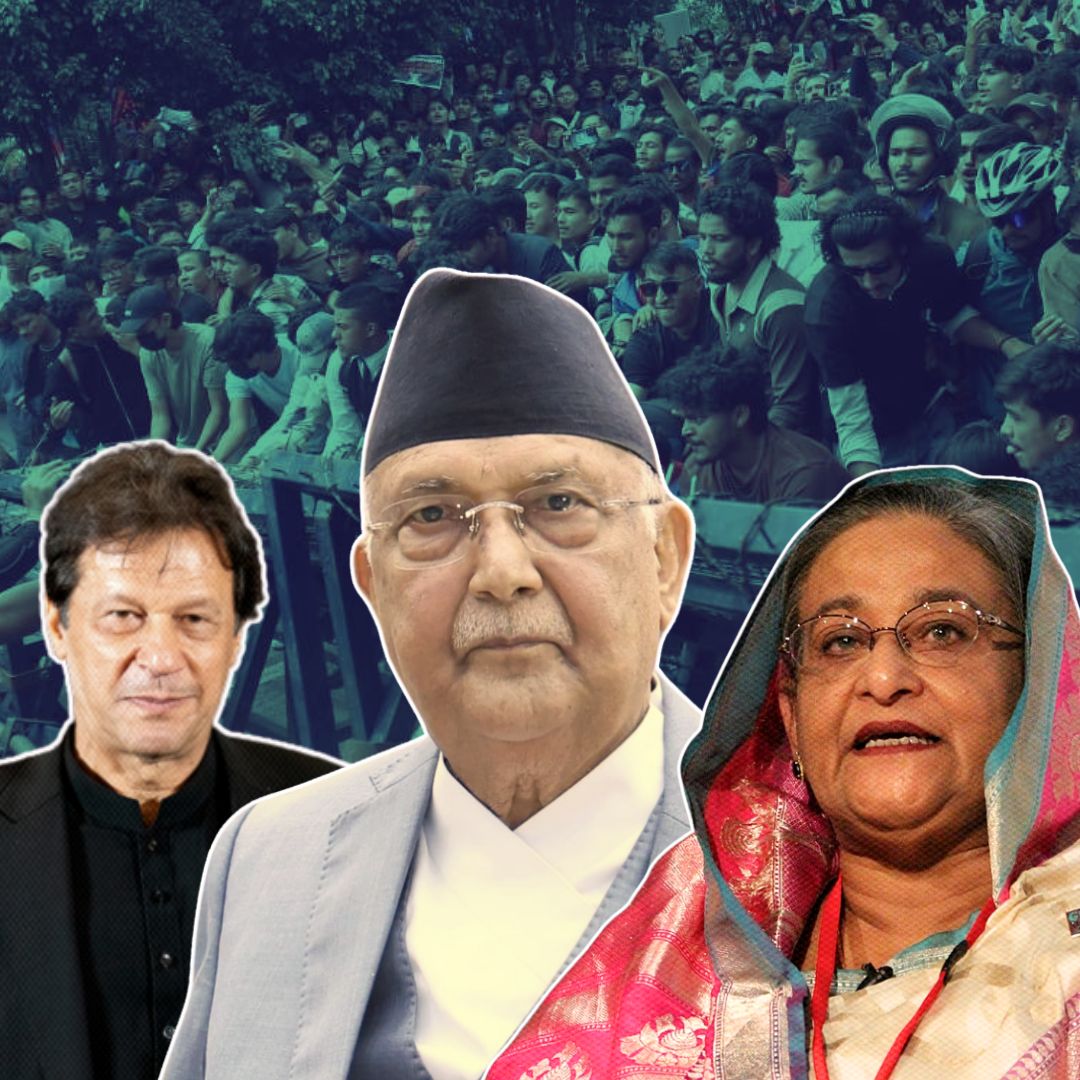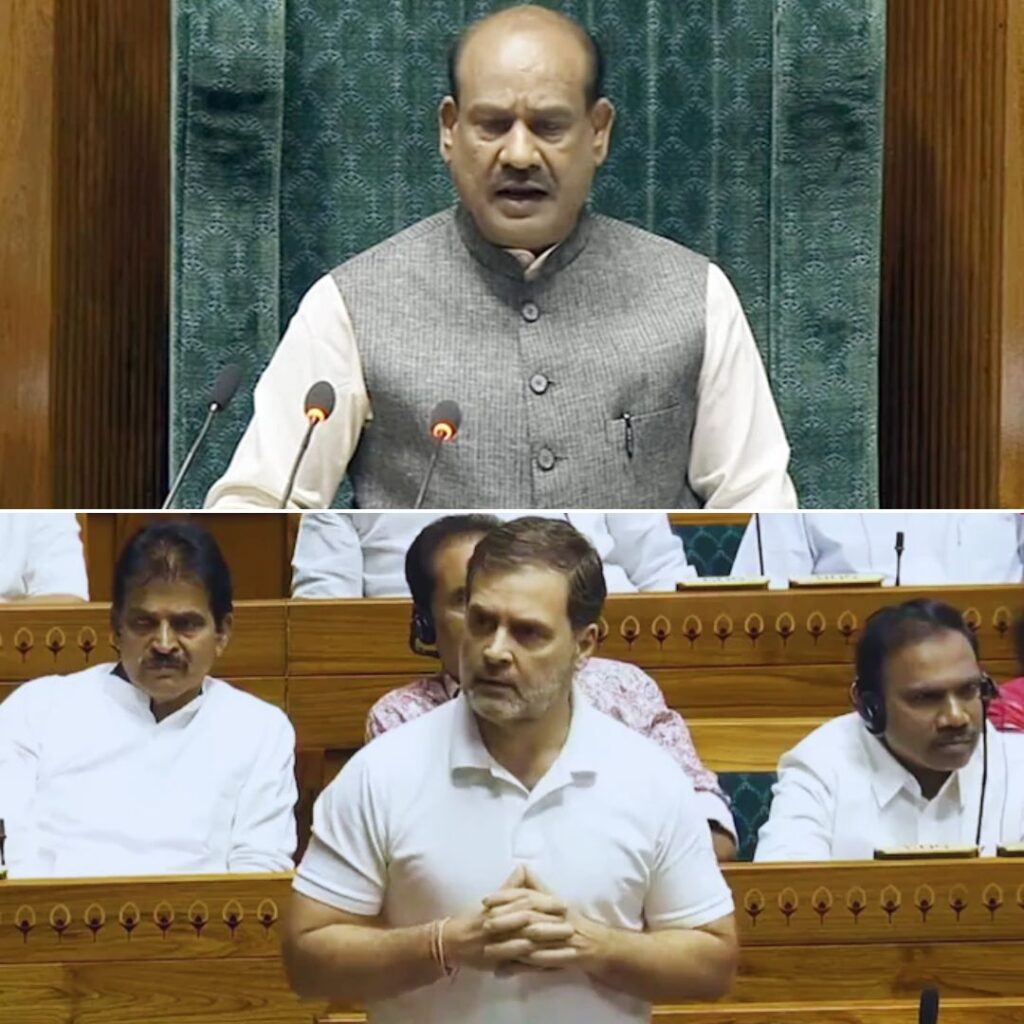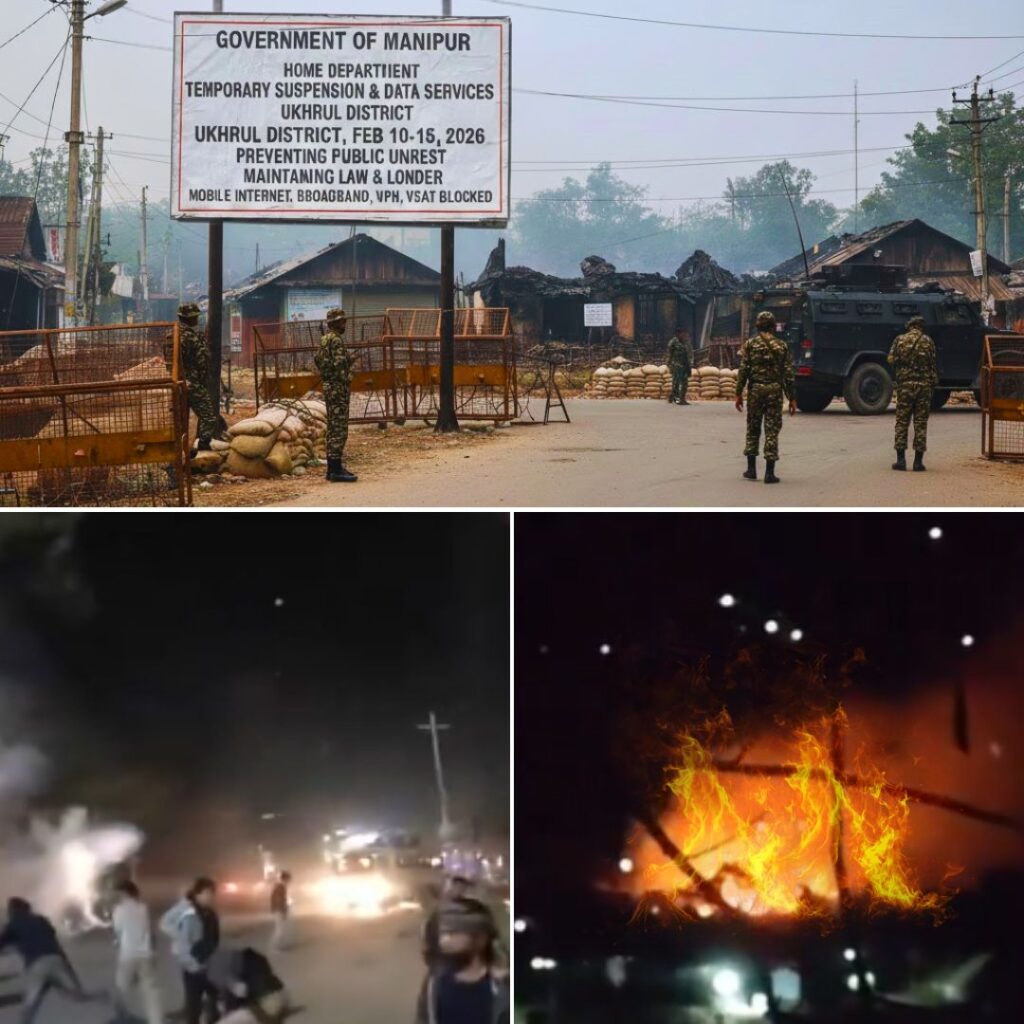Political unrest driven by youth activism, economic crises, and governance challenges continues to shake India’s neighbours including Nepal, Pakistan, Bangladesh, Sri Lanka, Myanmar, the Maldives, and Afghanistan. In Nepal, a ban on 26 social media platforms in September 2025 sparked deadly Gen Z protests leading to the resignation of Prime Minister KP Sharma Oli.
These movements, largely led by the digitally connected youth, are demanding transparency, justice, and reforms. The recent deadly protests in Nepal have become a catalyst highlighting the region’s fragile political climate and the growing impatience of its young population for meaningful change.
Nepal: Protests Against Government
Nepal’s government banned 26 key social media platforms on September 4, 2025. This triggered explosive protests led by Generation Z youth, especially coordinated via the exempt TikTok platform. Violent clashes with security forces killed over 22 protesters and injured many more.
Demonstrators also targeted government infrastructure, demanding the ban’s reversal, raising their voice against corruption and nepotism, and greater transparency. Amid the chaos, PM KP Sharma Oli resigned on September 8. The ban was lifted soon after, but protests revealed widespread frustrations with corruption, nepotism, and limited youth opportunities.

Bangladesh: Student Movement Topples Government
In 2024, Bangladesh’s student protests erupted over a civil service quota reserved for descendants of 1971 freedom fighters, widely seen as entrenching ruling party patronage.
The movement morphed into a broader anti-corruption and pro-democracy wave, culminating in the resignation of Prime Minister Sheikh Hasina. Polarization and ideological conflicts persist, with fundamentalist groups and opposition forces challenging the political landscape.
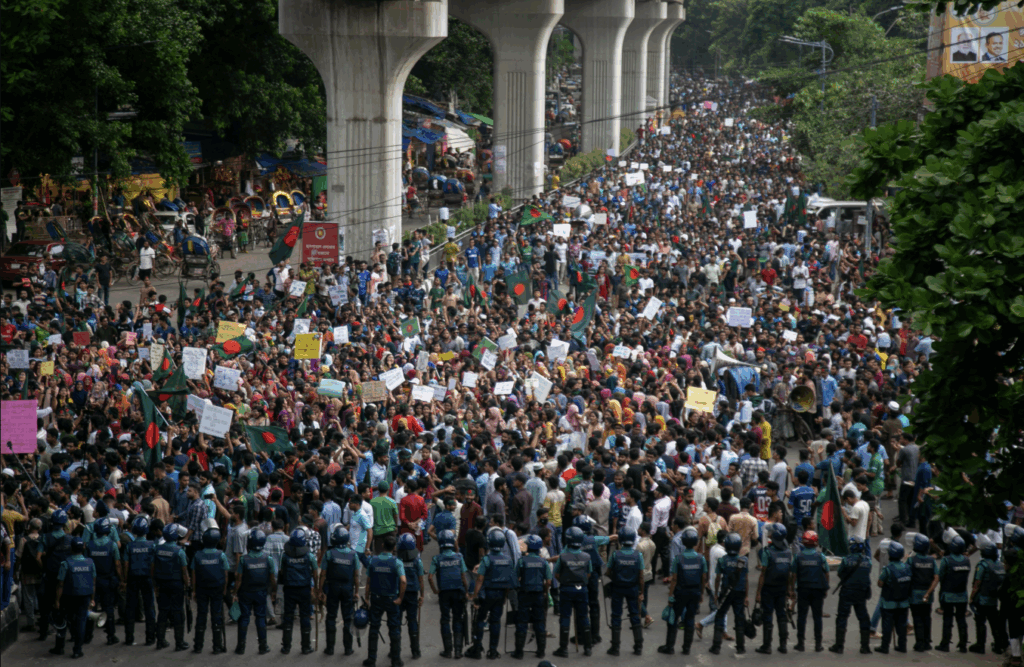
Sri Lanka: Political Change Amid Crisis
Following an economic crisis that led to mass protests and the fall of the Rajapaksa dynasty in 2022, Ranil Wickremesinghe became president but faced ongoing dissent.
The 2024 elections brought Anura Kumara Dissanayake and the National People’s Power coalition to power, signaling hopes for economic revival and reform. However, deep-rooted grievances linger amid inflation, unemployment, and governance challenges.
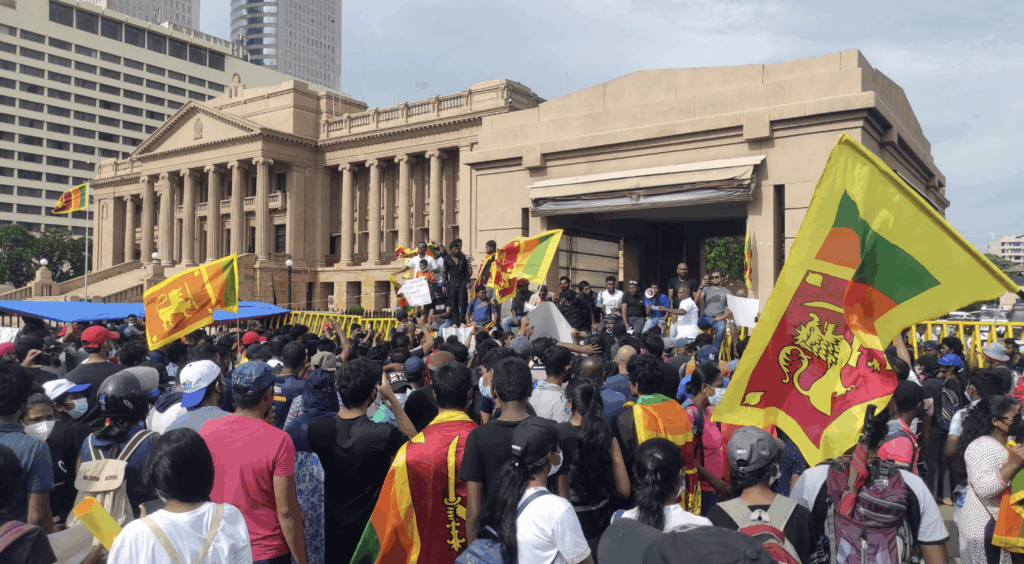
Pakistan: Political Instability and Militancy
From 2022 to 2024, Pakistan experienced significant unrest after former Prime Minister Imran Khan was ousted through a no-confidence vote in April 2022. This triggered nationwide protests, rallies, and the dissolution of provincial assemblies, alongside a failed assassination attempt on Khan in November 2022. Imran Khan was first arrested in May 2023 on corruption charges related to the Al-Qadir Trust case.
Concurrently, militant separatist groups like the Baloch Liberation Army (BLI) escalated attacks mainly in Balochistan, amid ongoing conflicts with the military, Tehreek-e-Taliban Pakistan, and Islamic State factions, intensifying political instability.
Myanmar: Military Coup and Detention of Aung San Suu Kyi
Myanmar’s military staged a coup on February 1, 2021, detaining de facto leader Aung San Suu Kyi, along with President Win Myint and other National League for Democracy (NLD) members. The military alleged election fraud despite clear electoral mandates.
Suu Kyi has faced multiple politically motivated charges and trials. Nationwide protests and armed resistance erupted but have been met with brutal crackdowns, resulting in thousands killed, detained, or displaced. The junta extends its rule amid continuing civil conflict and humanitarian crises.
Maldives: Nationalist Leadership Shift
The Maldives saw a political shift when Mohamed Muizzu won the November 2023 presidential election, defeating incumbent Ibrahim Mohamed Solih. Muizzu’s campaign included nationalist themes such as an “India out” stance.
His rise marginalized former president Abdullah Yameen, who formed the People’s National Front, contributing to political factionalism in the island nation.
Afghanistan: Ongoing Insurgencies and Instability
Afghanistan remains unstable post-Taliban takeover in 2021, with active armed resistance from groups like the National Resistance Front and ethnic militias. Political fragmentation, ongoing clashes, and humanitarian crises have further complicated the country’s governance and security.
The Logical Indian’s Perspective
The unrest across South Asia reveals a generational urge for accountable and transparent governance that values the voices of youth and civil society. The Logical Indian stands for peaceful activism, dialogue, and systemic reform as pathways to regional stability and inclusive prosperity.


